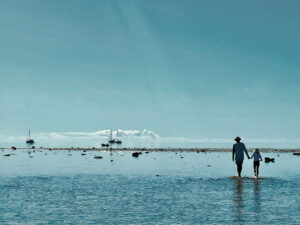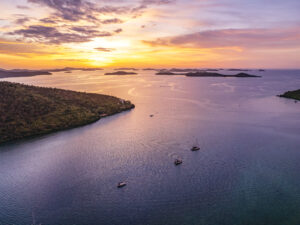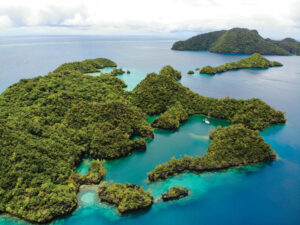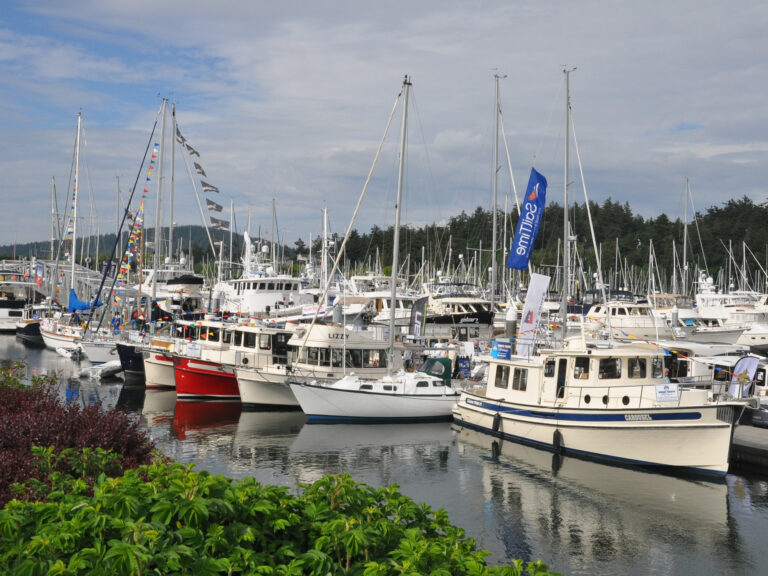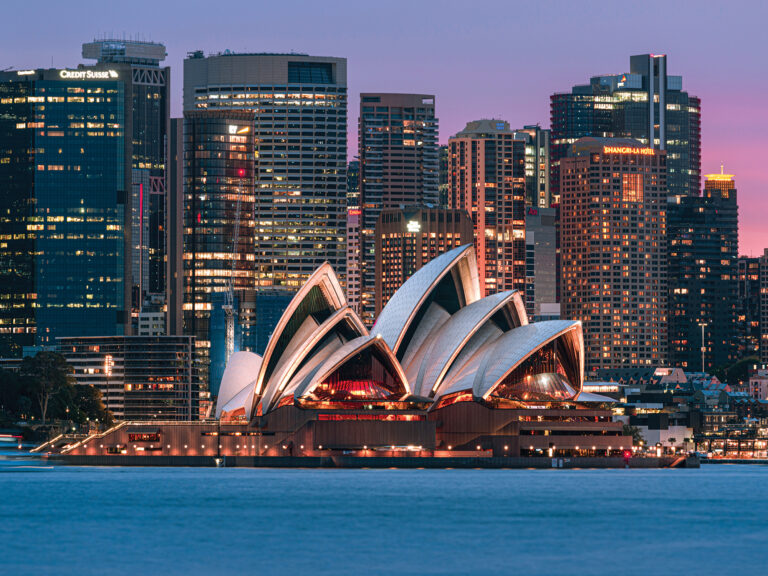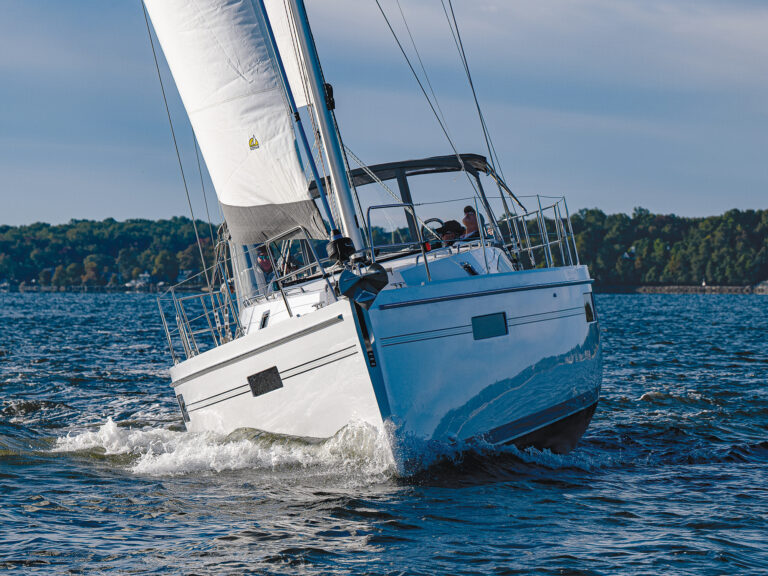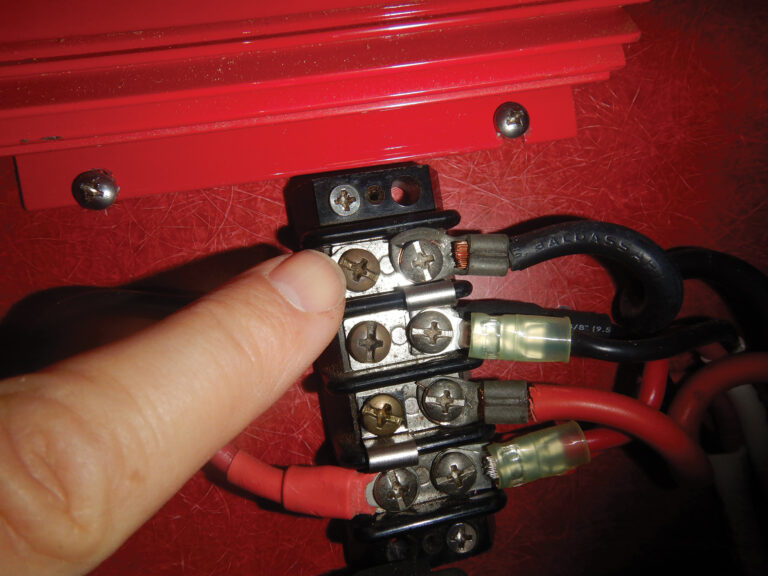This is our third trip across the Pacific, and we have been lucky enough to visit many islands in Polynesia.
Rapa made us feel like we were seeing Polynesia for the first time. Or like we were finally seeing the real thing.
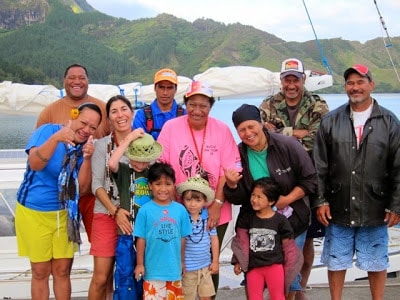
I have a lot more to say about Rapa. But a blog is a document that lives in the present, and now that we are happily in the Gambier, events will soon overtake Rapa memories in this space.
Before that happens, though, I’ve got a few more good Rapa posts in me – starting at the end, with our goodbye.
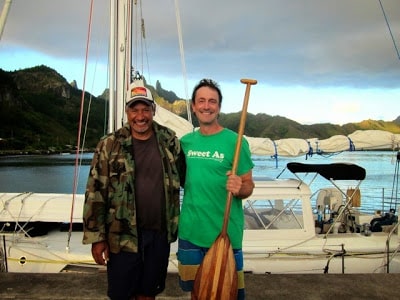
We have left hundreds of places behind over the last seven years, and it’s enough of a circus to organize crew and boat to go to sea without some landlubbers staring down from the dock, waiting to wave goodbye. Or worse yet, trying to help. So our normal routine is to say our brief farewells ashore the day before we leave, and then to slink away whenever we finally get ready.
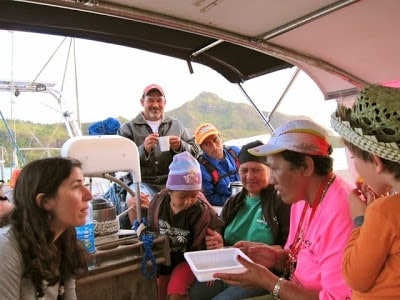
That is not an option in Rapa. That is clearly a place where good manners demand that friends be offered the chance to say bon voyage as you depart. And so, I now realize, it’s probably good manners to do the same everywhere in Polynesia.
So we spread the word that we were leaving at 0600 the next day.
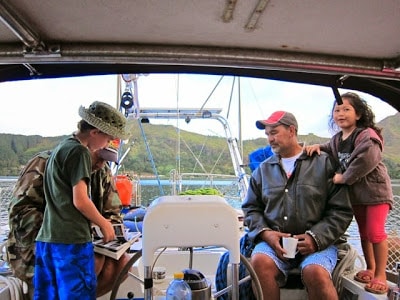
Johnny Faraire was the first to show up – and he handed me the va’a paddle I had been using on the island as a farewell gift. Which floored me, although he had given me warning a couple days earlier that he would do that.
I had some tuna hooks for him. But just now, as I am writing this, I wish I had thought, in that electric moment of leaving, to go back to the stern rail where our trolling rod was lashed in place for going to sea, and handed that to him.
That would have been the Polynesian thing to do.
But, alas, we live in the moment, and have to live with the decisions we make on the fly.
Jackye and Jane brought down Rurutu-style hats for the boys, and necklaces for all of us. Everyone had a cup of coffee on Galactic.
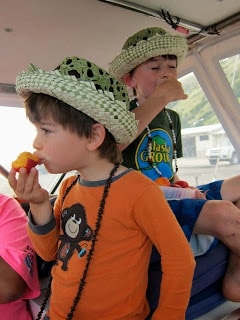
I had been concerned that we had not managed to tell Arnold and Lucie that we were leaving. Johnny managed to come up with their phone number and, faster than you might believe possible, Arnold and Lucie and Arnold Junior (Manu!) were at the boat, still looking very sleepy.
Arnold gave me a necklace and leaned in for a whiskery buss. Which gave me the key for how to comport myself with Johnny and Michel Senior.
It was the peak Gallic moment of my life.
After kisses and nanas all around, it was time for us to shove off. We got the main up, then made a pass by the dock for a final wave, and saw that two of Elias’ mates from many afternoon plays on the quai had come out with their mom to wave.
And then we sailed away from Rapa, most likely forever.
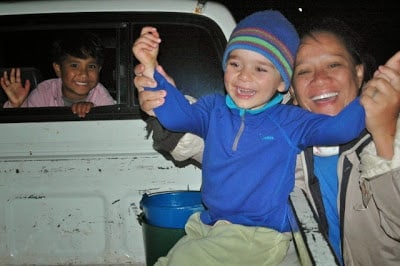
And, so…it all means what, exactly?
Well, I can only think that Rapa resonated so strongly with us because the people there showed us the living embodiment of an approach to life that so many Westerners aspire to.
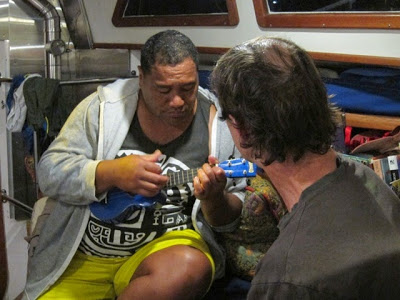
Things that Westerners pay lip service to – like living in the moment, and being generous, and not being shackled to a life that serves material possession – are everywhere in evidence in Rapa.
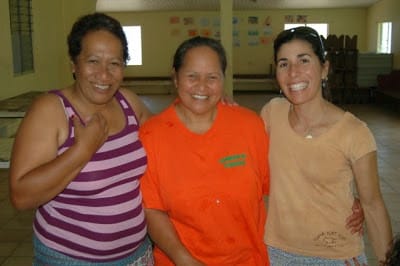
As always with my travel interactions, I’m keen not to see these people as abstract utopian beings. They’re complex people, with their faults and their talents, just like us. Shortly before we arrived in Rapa, there was the most horrible tragedy you could imagine, involving sudden death and some of the more hopeless themes of human existence. Rapa is very much a place of the real world.
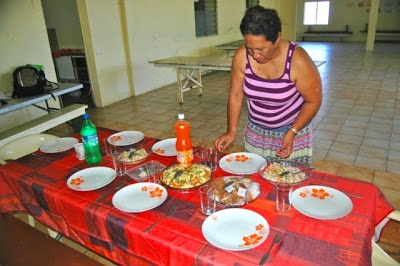
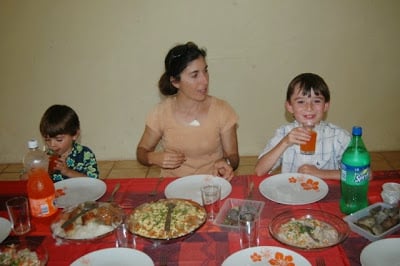
But people on Rapa treated us – strangers who could not speak with most of them – with an incredible grace. And that welcome made it hard for us, the always-a-little-confused visitors, not to see Rapa as this incredible remote bit of the world where people have learned to lead life in a way that’s just a little bit more beautiful than what people have struck on in other places.
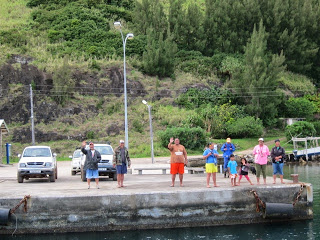
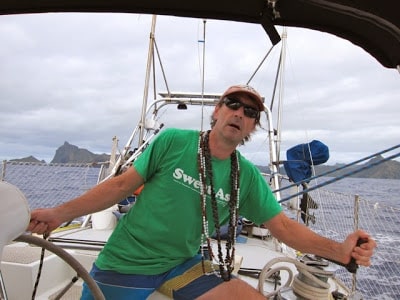
I suppose that’s what’s kept us coming back to Polynesia over and over again.

